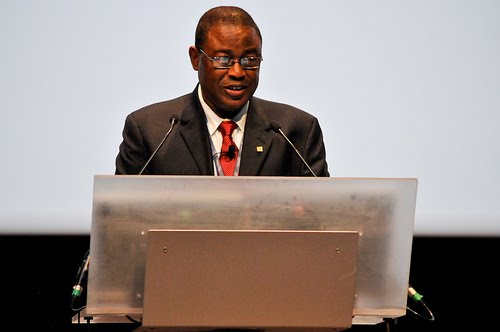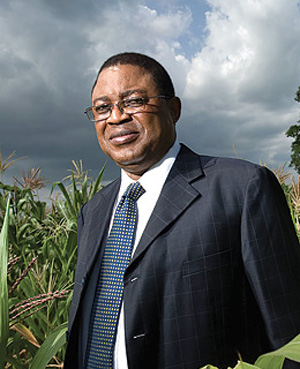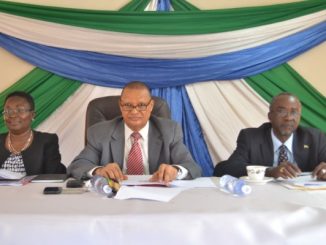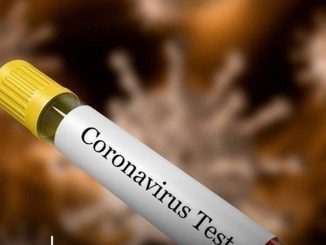
Excellencies,
First, I would like to commend the UN Secretary-General Ban Ki-moon for the SE4ALL initiative. Let me also acknowledge the strong leadership embodied by the members of the SE4ALL High-Level Group, and also praise the efforts of the leadership of SE4ALL Secretariat for having successfully organized this Forum.
In the context of the Sustainable Energy for All commitments that were announced during Rio+20, Sierra Leone has, through the launching of the Agenda for Prosperity, stepped up progress in the energy sector, particularly so with a view to improving the lot of the citizenry.
Sierra Leone is therefore poised to seize advantage of its natural endowments in abundant sunshine and rainfall by embarking on solar power generation, the construction of mini-hydro plants and bio-energy initiatives. Considering the huge potential for solar PV or solar home systems, the use of solar technology especially in rural communities is attracting a great deal of attention. The Ministry of Energy is therefore currently experiencing an increasing number of proposals on the adoption of renewable technologies.
Universal Access to Modern Energy Services
To take forward our ambition to provide universal access to Modern energy services, Sierra Leone has embarked on one of the largest energy sector reform programmes in the West African sub-region. This reform will focus on the unbundling of the existing power utility system and the creation of an independent regulatory body, the Electricity & Water Regulatory Commission (EWRC). The aim is to ensure a more transparent, efficient and fit-for-purpose energy ecosystem.
The issuing of generation licences to independent power producers (IPPs) forms part of the above process and will, subsequently, lead to much greater private sector involvement. Furthermore, in order to ensure universal access to modern energy services, a number of energy projects are in progress, some of which are:
- Hydro’s – Bumbuna Hydro Project Phase I, commissioned in 2008, has an installed capacity of 50MW and a firm capacity of 18MW. The power is transported through a 200km 161KV transmission line to Freetwon, the capital city. Although it currently serves Freetown, Bumbuna Town and Makeni, plans are in progress for other communities which have also been earmarked for thermal plants in the interim to be connected. Bumbuna II, which requires about $520 million (ECP Bids cost), when completed, is expected to increase the installed capacity by 200MW. Similarly, the construction of local mini-hydro plants is nearing completion in three rural communities while an existing mini-hydro (6MW) supplying is expected to increase generation to 12 MW. Also, other mini-hydro projects with expected generation of 85 MW and 10 MW are under study.
- Solar -With funding from GoSL, ECOWAS and India, nearly 9,000 solar street lights are being installed in Freetown and various Provincial and District headquarter towns at a cost of USD28 million. To further ensure universal access to modern energy the Barefoot Initiative under the Rural Solar Electrification exercise has established the Barefoot Solar Training Centre in Port Loko District. The emphasis is on training poor rural women in basic solar technology such as the assembly and repair of solar lanterns, through instruction brought in from Tilonia Barefoot College in India. Such ‘barefoot solutions’ can be categorized into solar energy, water, education, health care, rural handicrafts, people’s action, communication, women’s empowerment and wasteland development. The Barefoot College Solar Strategy will be rolled out to all districts, so that remote areas likely to be off the national grid will have access to affordable and sustainable energy. We will also explore small scale biomass for rural electrification.
- WAPP – the West African Power Pool is comprised of Ivory Coast, Liberia, Sierra Leone and Guinea which are constructing a transmission line known as the WAPP CLSG 225kV Line. This consist of a total length of 1411 Km with 525Km in Sierra Leone; 11 substations with 5 in Sierra Leone. The project is funded by four Development Banks with EIB and AfDB providing loans to Sierra Leone totaling 220m Euros. The GoSL contribution amounts to $1m as share capital to the Transmission Company and 3.915m for EIA with interest during construction.
Doubling the Global Rate of Improvement in Energy Efficiency
- On another level, Sierra Leone is far advanced in its strides to double the global rate of improvement in energy efficiency. As a member of ECOWAS, the country is participating fully in the development of both a National Renewable Energy Plan and an Energy Efficiency Action Plan, together with basic frameworks for policy implementation. This also serves as an operational framework for the Sustainable Energy for All (SE4ALL) Action Agenda.
- It is, also worth mentioning that the majority of urban residents appear to have taken on the spirit of improving their energy efficiency. Cook stoves are increasingly popular and in high demand with households eager to minimize the cost of providing fuel for cooking at home. Several types of such ‘wonder stoves’ are in great demand, especially in the cities
- Similarly, energy-saving bulbs are now a common feature of home lighting.
Doubling the Share of Renewable Energy in the Global Energy Mix
- In terms of doubling the share of renewable energy, Sierra Leone, as we have seen, is already benefiting from a significant share of renewables due to the existing and on-going construction of hydroelectric projects and use of bio gas.
Starting from such a low base in terms of energy access, we anticipate that, very shortly, we may be able to increase the share of the renewables and likely double the current rate by 2030.
- Currently almost all street lighting in the country is by solar lights and a significant number of rural health facilities will be receiving solar lighting and refrigeration within the next few months using solar system.
- Rural Electrification funded by World Bank for a sustainable electrification of 14 villages is in progress. The scope and coverage of this project have been further defined in coordination with the Ministry of Health and Sanitation (MoHS). The project will be supplying Solar Direct (SDD) Refrigerators for vaccine storage to the 150 Basic Emergency Obstetric and Newborn Care (BEmONC) sites spread across all chiefdoms in the country care centers also located across the whole country.
As noted earlier, there has been a significant progress in developing programmes to increase energy accessibility by improving the share of renewable in the overall energy mix and promoting energy efficiency.
However, the demand for energy far exceeds supply and the sector is faced with the following challenges:
- Dilapidated transmission and distribution system resulting in high line losses, estimated at about 40% of units generated.
- Generation capacity is insufficient. Only about 10% of the population has access to electricity from the national power grid.
- High Seasonal variability in hydroelectric power production
- The need for adequate and timely funding to develop additional programmes and supporting policies to achieve the SE4ALL.
I thank you for your attention.





Leave a Reply